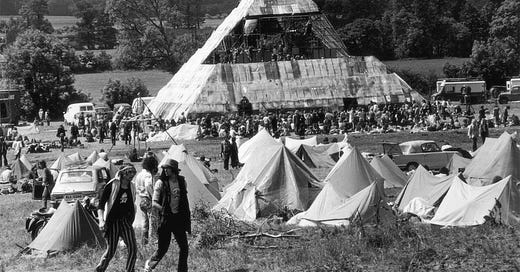The annual Glastonbury Festival has become a unique British cultural institution. Each year, in June, on the weekend nearest the summer solstice, hundreds of thousands of people flock to Worthy Farm in the Somerset village of Pilton to camp for three days. They are there to experience the dizzying kaleidoscope of music, theatre and arts on offer on numerous stages.
The festival caters for all ages, cultures and socio-economic backgrounds. It is often referred to by cynics as a holiday camp for middle-class hippies. Yet the origins of this quintessentially British event are rooted deep in the counter-culture and entwined with LSD and other psychedelics. Had it not been for the psychedelic focus of the first major Glastonbury event, the festival would not have developed into the kaleidoscopic, multi-media event it now is.
But why and how did Glastonbury become the spiritual birthplace of the free festival movement? The growing awareness among young people that the LSD experience itself wa…




